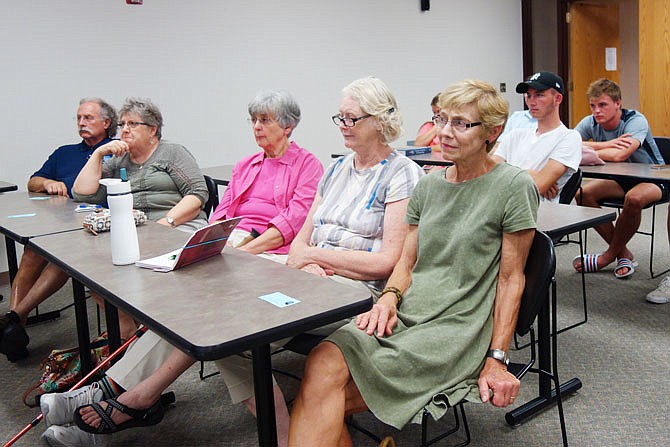Here's a tale of two children.
Both have Type 1 diabetes. The first child lives in an affluent household in the suburbs. His parents' jobs allow them to spend plenty of time with him, so they notice when he begins showing symptoms of the disease, like constant thirst. They drive the child to a doctor, where he is tested and diagnosed quickly.
The child's diabetes is managed through blood sugar monitoring, insulin injections and a carefully controlled diet. He even gets to go to diabetes camp, where he learns more about the disease and how to manage it himself.
The second child lives in a poor household in an urban area. His parents work long hours and are not educated about potential health warning signs, so by the time they realize something is wrong, the child is very ill.
Lacking reliable transport, they summon a costly ambulance to an emergency room, where they know he'll be treated despite the family's lack of health insurance. Once the child is diagnosed, the parents find the complications of managing his health difficult, and struggle to afford his treatment. He may face serious health complications in the future.
That type of scenario is real.
Lisa Sitler has witnessed it. She's a nurse practitioner and assistant professor of nursing at William Woods University with 15 years of experience in public health.
"I can't tell you the number of people who used to come into our health department saying, 'Can you help me? I can't afford my test strips and insulin,'" she said.
Sitler's Tuesday lecture about inequality in health care was part of One Read 2018. This year's book, "Killers of the Flower Moon," addresses, in part, the unfair treatment of Native Americans by the United States government.
Even today, many people face disadvantages in accessing quality health care simply because of who they are, Sitler said.
"Simply being can make you part of a vulnerable population," she said.
Vulnerable populations are those at greater risk for poor health status and health care access, Sitler explained. Their health needs are affected by their economic and social conditions.
Many factors may contribute to that vulnerability. Where you live matters as people in rural areas may be socially isolated and far away from specialist health care practitioners. So does race, which can affect your income and may also come with associated health risks, such as higher rates of certain diseases. Income and education factor in. Mental health is another large and complex factor.
Sitler spent a lot of time working with homeless, who face many health risks. Mental health issues often contribute to or result from homelessness.
"I met this lovely woman," she said. "She had eight years of college. She had a doctorate. And she was homeless because she had schizophrenia. Her family disowned her and she lost everything."
Solving it
With an issue this complex, there is no single solution. However, Sitler and her audience had some suggestions.
Roberto Duro, a William Woods sophomore from Spain, said health care is nationalized in his home country. Every citizen is taxed a small amount so everyone has free access to the care they need.
"You just go to the website of the state you're in and request an (appointment)," Duro explained. "Often, you can go in the next day."
Audience member Marilyn Bettenhausen also supported the idea of universal health care. She spoke about a physician group, Physicians for a National Plan, that's working toward that goal despite opposition from industries that profit under the current system.
"It seems like such a simple thing, but big pharma doesn't want to lose the money," she said.
Sitler emphasized the importance of making prevention more accessible.
"It's much cheaper to prevent and promote healthy behaviors than it is to treat," she said.
She talked about the dental vans the Elks Lodge drive around and the eye care the Lions Club provides.
"What if we bring (health care) to the community?" she said.
She also proposed increasing the presence of in-school clinics staffed by nurse practitioners or even volunteer physicians. If physicians will fly to Jamaica to do volunteer health care, as she does annually, why not invite them to a school district in rural Kentucky?
Increasing transport options can also help, she said. Sitler pointed out there is only one bus per week between Callaway County and St. Louis, where many travel to see specialists.
"If you miss that bus, you're out of luck," she said.

